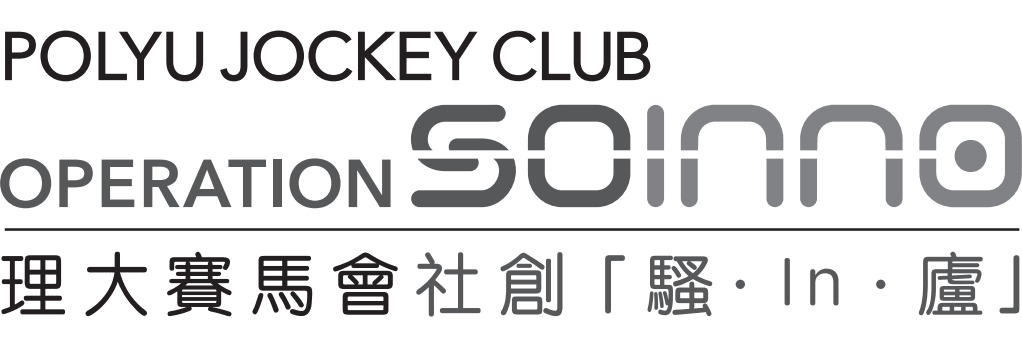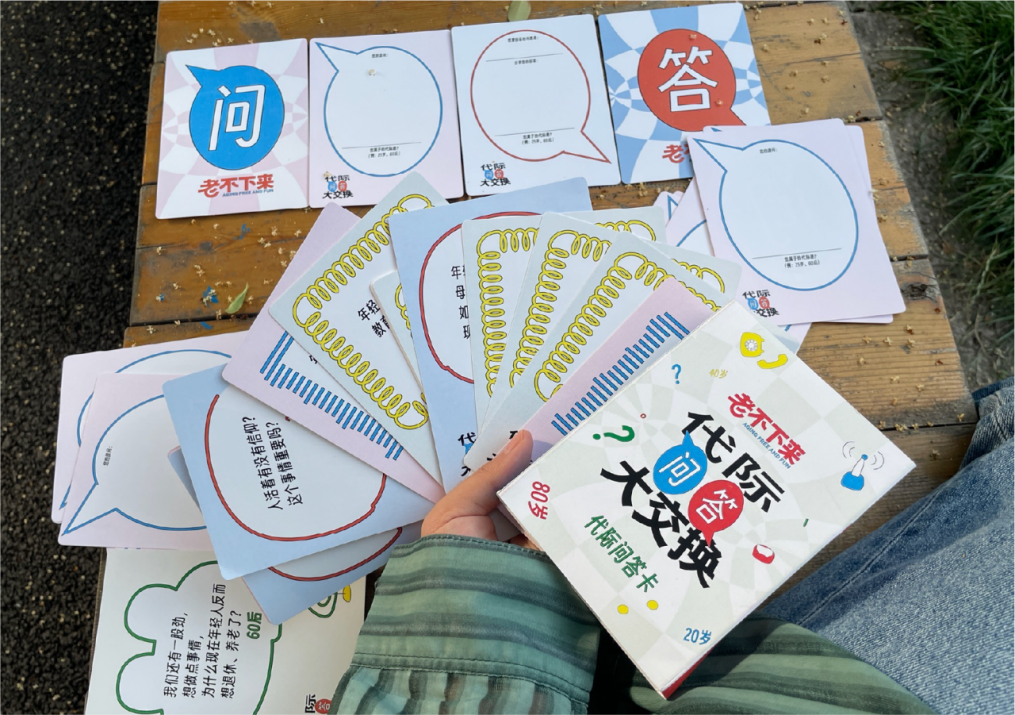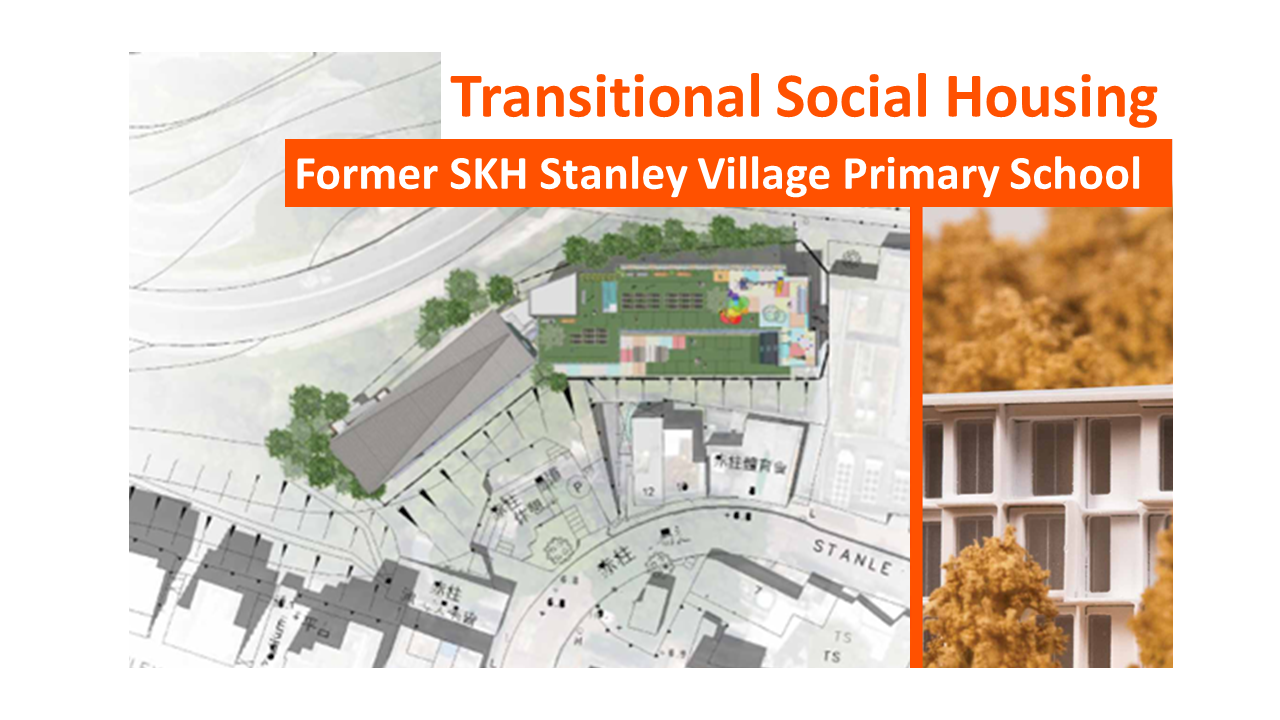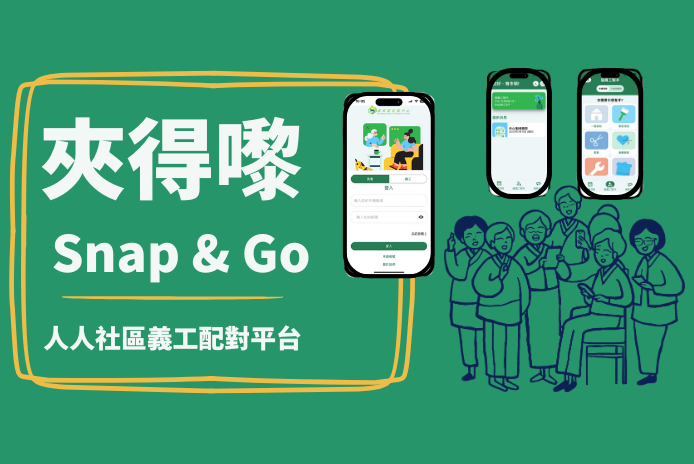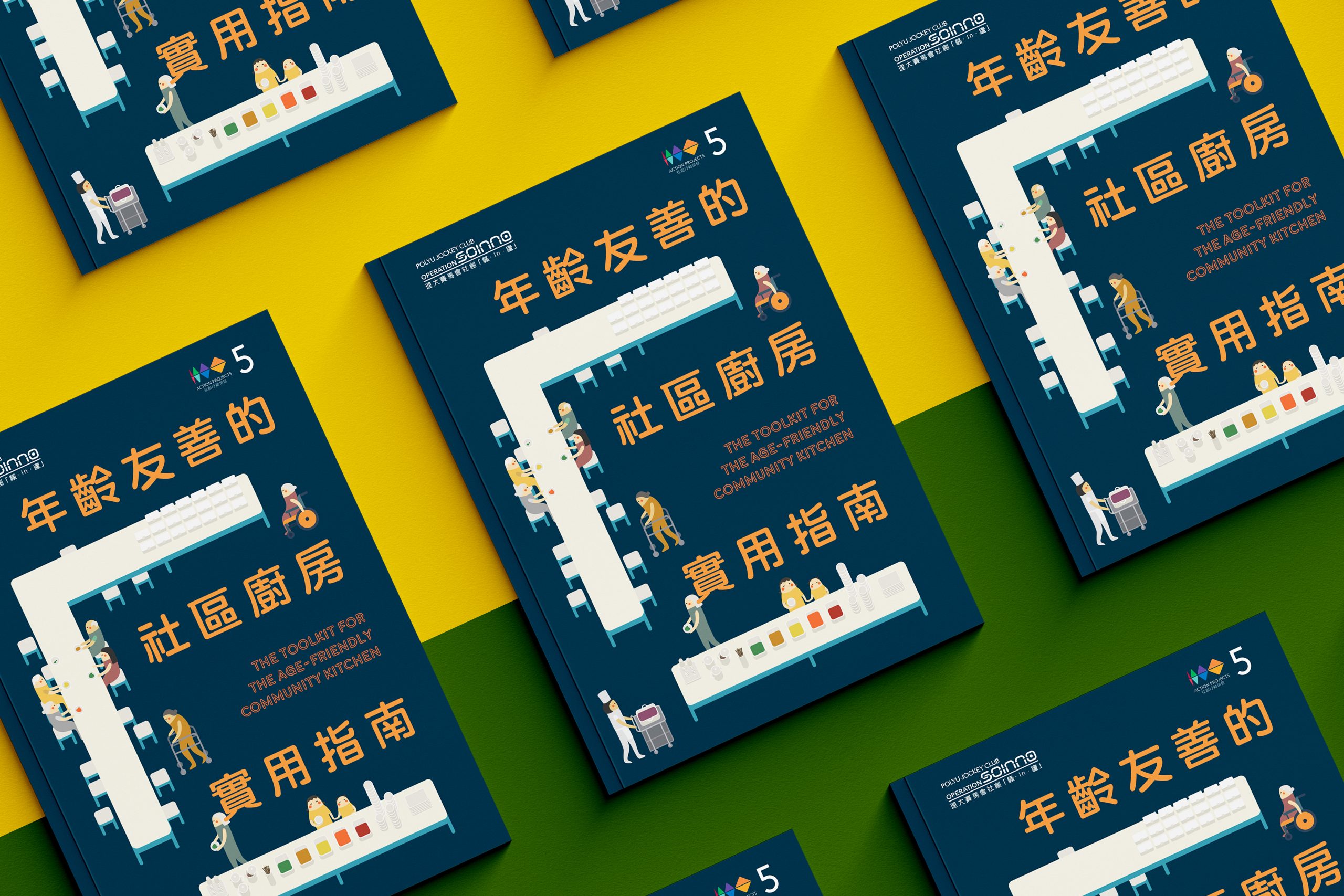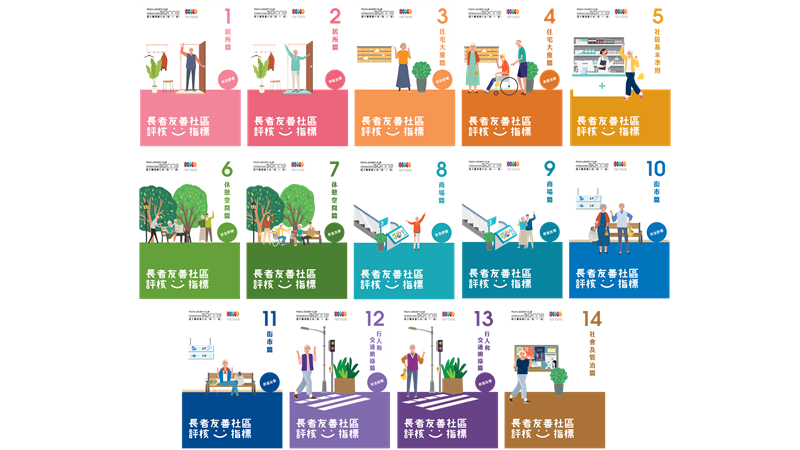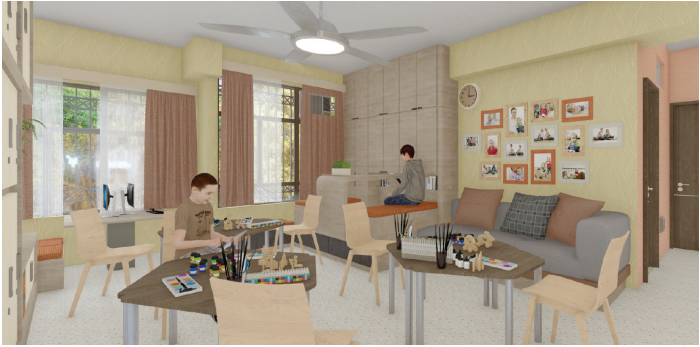Overview
The ‘Inter-generational Dialogue Exchange’ is an action project initiated by Shanghai Free-Down Space to address the issue of social ageing. It is designed to address questions related to values and lifestyles, retirement planning, perspectives on ageing, and other relevant areas. The project facilitates interactive question and answer (Q&A) sessions between different age groups, aiming to promote dialogue between youth and older adults. ‘We were born in different eras, yet we live in the same present’. The project aims not only to foster inter-generational integration and inclusivity but also to explore better ways of facing increasingly diverse social challenges and changes. The project generates exhibitions, workshops, videos, audio presentations, and other forms of media.
Outcomes
The ‘Inter-generational Dialogue Exchange’ action project (referred to as the Dialogue Action project), began in March 2023. Through workshops and a cross-generational Q&A exhibition, it has collected over 1,000 Q&As, which have helped the project team gain a better understanding of the diverse lives and attitudes of different age groups. Following the initial interactive Q&A, sessions, the project team compiled a toolkit of effective tools and methods for facilitating inter-generational communication, which they scaled up for use by other institutions and organisations. This promotional programme is called the ‘Visiting Plan Around the Nation’. Taking advantage of the momentum it created, the Dialogue Action project has been expanded to 50 community spaces in 15 cities across the country, including Hong Kong, Beijing, Chengdu, Guangzhou, Shenzhen, Wuhan, Hangzhou, Wuxi, and Zhoushan. Through exhibitions, workshops, interviews, and other means, it aims to foster inter-generational communication and generate a broader impact.
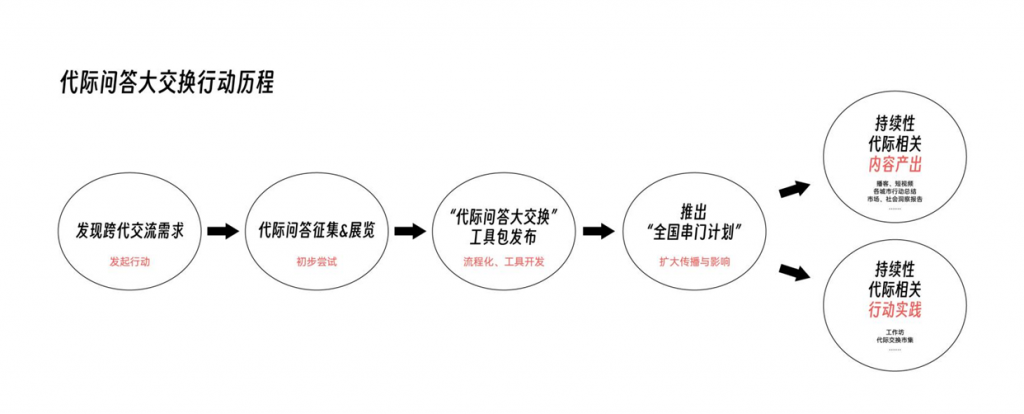
Process
Inspiration
The Dialogue Action project originated from a unique space – an underground air-raid shelter managed by Shanghai Free-Down Space. Here, the project team discovered that the general public’s perception of older adults differed from the reality. The older adults took pride in their unique passions and skills, with lives that were just as exciting and fulfilling as those portrayed by the younger generation on social media platforms. However, they also yearned to break free from isolation and desired attention, listening, and acknowledgement. Motivated by these findings, the team initiated the Dialogue Action project, aiming to foster dialogue between different generations through the simple and direct method of mutual questioning. The goal was to create opportunities for mutual understanding and integration.
Ideation
The concept of the Dialogue Action project initially emerged from an exhibition held in March 2023. The project team planned to collect Q&As from individuals of different ages through interviews and the exhibition format. They invited young people and older adults to ask questions in advance, and simply posted them on the exhibition walls. Unexpectedly, these questions sparked numerous responses, initiating discussions covering various age groups’ values, lifestyles, retirement planning, and perspectives on ageing. The Q&As also resonated with audiences online, generating further discussions. The team realised that this simple inter-generational Q&A format could facilitate communication between individuals and should not be limited to a single exhibition. Therefore, based on the Q&A prototype, the project team showcased a comprehensive ‘visual upgrade’ of the inter-generational dialogue during community activities in May 2023.

The project team decided to use cards as a design tool to facilitate inter-generational communication. In face-to-face interaction settings, these visual tools help to break the silence and quickly initiate dialogue. Furthermore, this approach aids in promoting and raising awareness of elderly issues, attracting attention from various sectors of society.
Implementation
When the idea of using design tools as intermediaries to facilitate inter-generational communication emerged, the team designed a set of interactive cards that are easy to disseminate, use, and explain. The set includes a series of question cards and answer cards that are suitable for various scenarios, including the following:
- workshops and street interviews and other settings where they can be used to establish dialogue and bring generations closer;
- organisational events to enliven the community atmosphere; and
- research to uncover the needs of the older adult population.
Successful experiences in the community encouraged the project team to engage in long-term action planning. For example, the team started developing an overall image plan aligned with the flagship event of the Shanghai Free-Down Space, along with a distinctive design and easily replicable exhibition presentation. Simultaneously, the teamed planned a series of offline interactions and content presentation methods. These were integrated into a toolkit and used to promote this Dialogue Action project to community organisations nationwide through the ‘Visiting Plan Around the Nation’ campaign.
Given that the goal of the toolkit is to promote inter-generational communication in diverse communities nationwide, the project team focused on enhancing the inclusivity of the interactive cards featured in the toolkit. The team considered the following in terms of the toolkit’s content and format.
- Categorisation: The team categorised the questions, which included both age-specific questions and common questions suitable for all age groups, ensuring that everyone can participate in the discussions.
- Card format: The questions are presented on cards, making the toolkit easily portable and convenient to carry.
- Single-sided questions: The questions were only printed on one side of the cards, allowing participants to randomly select a question by drawing a card, which made the process more engaging and enjoyable.
- Blank cards: To provide participants with more freedom to express themselves, the toolkit also includes blank question cards and answer cards for participants to write their own questions and answers.
Through these factors, the project team aimed to create an inclusive and versatile toolkit that encourages active participation from individuals of all ages and backgrounds.

The project team believes that maintaining momentum is essential for fostering inter-generational communication and inclusivity. Therefore, promotion is crucial. In addition to the interactive cards, the toolkit includes design templates for exhibition posters, which allow community organisations across different locations to convert the collected Q&As into display posters for offline exhibitions. Drawing from the exhibition experiences of previous Dialogue Action projects, the project team has compiled curatorial guidelines to help users of the toolkit effectively organise and implement exhibitions in their respective areas. These guidelines help to ensure the exhibitions are successfully executed and resonate with the local community.


